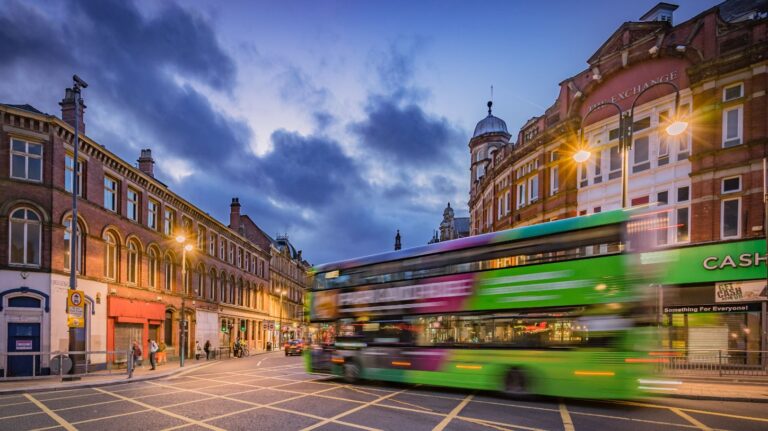Leeds City Council has published new data on the city’s air quality, which shows that air pollution has not returned to pre-pandemic levels, representing a general decline in pollution.
The council attributes this change to a shift in travel behaviours, more rapid adoption of electric vehicles and ‘major highways improvements’.
However, some 54 out of every 1,000 deaths in Leeds are still linked to air pollution, despite council efforts to improve air quality.
This new data covers the 2021 period, with 2022 data expected later this year.
The local authority set new targets to improve air quality faster than required by national government in 2021 as part of a strategy to reduce air pollution and emissions.
According to the new data, a limited number of air quality monitors in the city centre and near Kirkstall Road measured pollution levels (NO2) higher than the legal threshold across the entire Leeds district.
Cllr Mohammed Rafique, executive member with responsibility for climate and air quality, Leeds City Council, said: “It is hugely reassuring to see this new data, which confirms that Leeds’ air quality hasn’t returned to pre-pandemic levels and is continuing to get better.
“I am proud of the truly citywide effort that has made this progress possible. It is quite literally helping to save lives and making Leeds a healthier, better place to live.
“Despite these improvements, 54 in 1000 deaths in Leeds can still be linked to air unhealthy air, so it is vitally important that we continue taking further action to bring down pollution levels even more. This council will lead by example to do just that.”
What’s more, all but one of these locations represent limited health risks due to the reduced likelihood of people dwelling there.
Each of the city’s six designated Air Quality Management Areas (AQMAs), meaning neighbourhoods previously identified as being unlikely to meet clean air standards, are reportedly now compliant with national regulations and show continual progress.
Leeds City Council has thus announced that it will revoke five of the six AQMA designations this year.
It has also pledged to raise awareness of the impact of air pollution on health as part of its Air Quality Strategy, including work with health and social care workers to help protect especially vulnerable groups.
In 2017, Leeds was one of several cities directed by the UK government to introduce a charging Clean Air Zone (CAZ) to tackle illegal pollution levels. The policy came with almost £8m in financial support for businesses to support accelerated adoption of cleaner vehicles.
Plans to introduce a CAZ were scrapped after a majority of public transport and private hire vehicles switched to less polluting alternatives.





